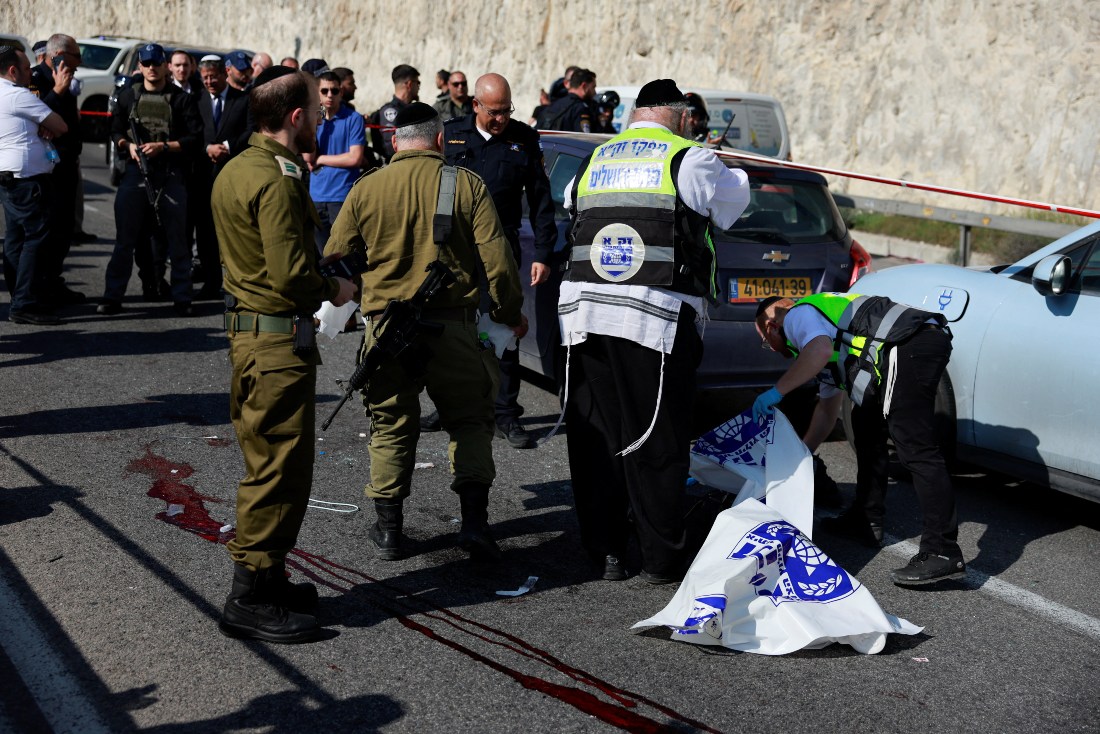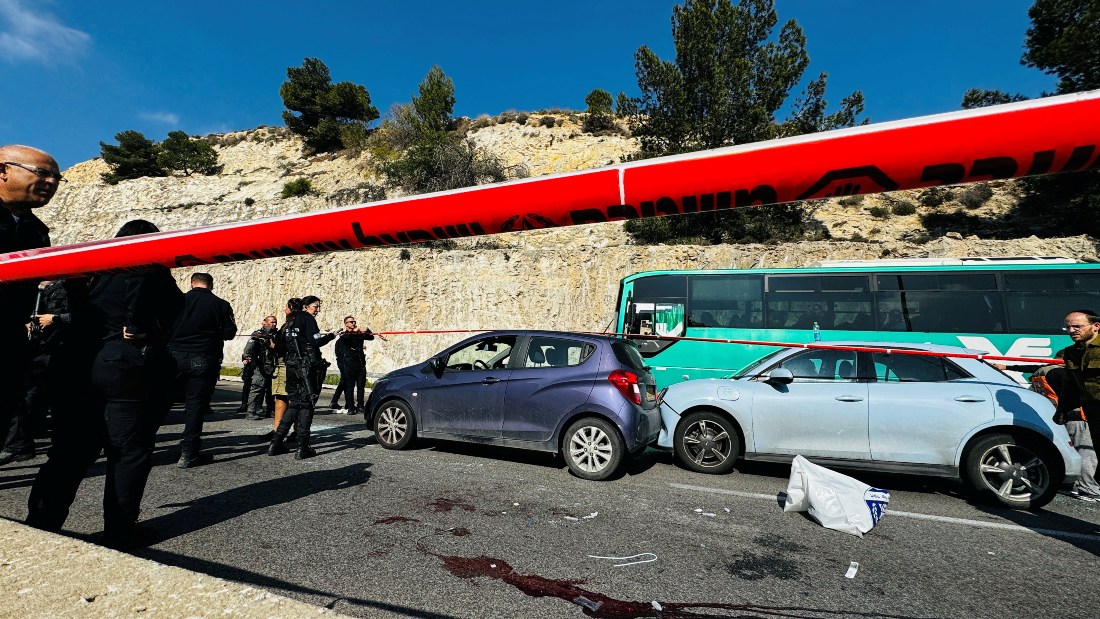JERUSALEM: Three Palestinian gunmen killed one person and wounded eight, among them a young pregnant woman, in a “terror attack” Thursday when they sprayed automatic weapons fire at vehicles near a Jewish settlement in the occupied West Bank, Israeli police said.
The shooters were “neutralized,” police said, and an AFP photographer later saw their bodies at the scene of the attack on a highway east of Jerusalem, where five cars were riddled with bullets.
“The three terrorists... got out of their vehicle and started shooting automatic weapons at vehicles that were in a traffic jam on the road toward Jerusalem,” police said in a statement about the attack near the Maale Adumim settlement.
“Two terrorists were neutralized on the spot,” police said. “In the searches conducted at the scene, another terrorist was located who tried to escape and he was also neutralized.”
The gunmen were identified as Mohammed Zawahrah, 26, his brother Kathim Zawahrah, 31, and Ahmed Al-Wahsh, also 31, by Israel’s internal security service Shin Bet.
Among those wounded was a 23-year-old pregnant woman who was in critical condition, said the emergency response service Magen David Adom and a spokesperson for the Shaare Tzedek Hospital.
Violence was already on the rise across the West Bank prior to the Gaza war sparked by Hamas’s October 7 attack, but has escalated since then to levels unseen in nearly two decades, with hundreds killed in recent months.
Israel’s far-right National Security Minister Itamar Ben Gvir visited the site of Thursday’s attack where he told journalists: “The enemies... want to hurt us. They hate us.”
He argued that “we need to distribute more weapons” and that “our right to life is superior to the freedom of movement” of residents governed by the Palestinian Authority under president Mahmud Abbas.
“There should be more restrictions and we should put barriers around villages and limit the freedom of movement” of people from the West Bank, Ben Gvir added.

Israeli officials work at the scene of a shooting attack by Palestinian gunmen near the Maale Adumim settlement, in the Israeli-occupied West Bank Feb. 22, 2024. (REUTERS)
Israel’s far-right Finance Minister Bezalel Smotrich called for a “firm security response... and colonization” by building thousands of new housing units in settlements like Maale Adumim and across the West Bank.
“Our enemies must know that any harm done to us would result in more construction, more development and even more control over the entire country,” he said on X, formerly Twitter.
The attack came after two people were shot dead last Friday at a bus stop in southern Israel near the town of Kiryat Malakhi.
The West Bank has seen frequent Palestinian attacks on Israelis and near-daily raids by the Israeli military that often turn deadly.
Israeli troops and settlers have killed at least 400 Palestinians in the West Bank since the Gaza war broke out, according to the Palestinian health ministry in Ramallah.
Israel captured the West Bank — including east Jerusalem, which it later annexed — in the Arab-Israeli war of 1967.

Four people have died, including three gunmen. (REUTERS)
Around 475,000 Jewish settlers currently live in the occupied West Bank, in settlements considered illegal by the United Nations and most of the international community.
The West Bank’s Palestinian population is about 2.9 million.
The Palestinians claim the territory as the heartland of a future independent state, a goal being discussed by the international community as the Gaza war rages into a fifth month.
Israel’s parliament Wednesday overwhelmingly backed a proposal by Prime Minister Benjamin Netanyahu opposing any unilateral recognition of a Palestinian state.
The Gaza war erupted after Hamas militants attacked Israel on October 7, resulting in the deaths of around 1,160 people in Israel, mostly civilians, according to an AFP tally based on official Israeli figures.
At least 29,410 people, mostly women and children, have been killed in Israel’s retaliatory military offensive on Gaza, according to the health ministry in the Hamas-run territory.























